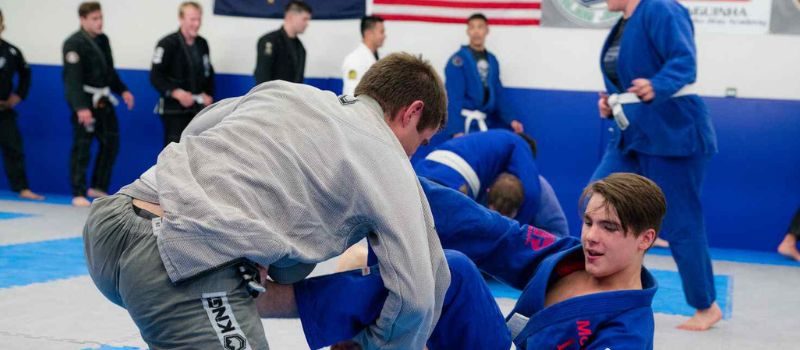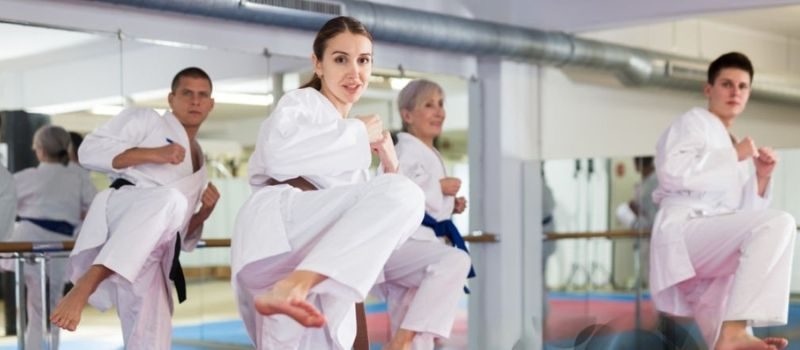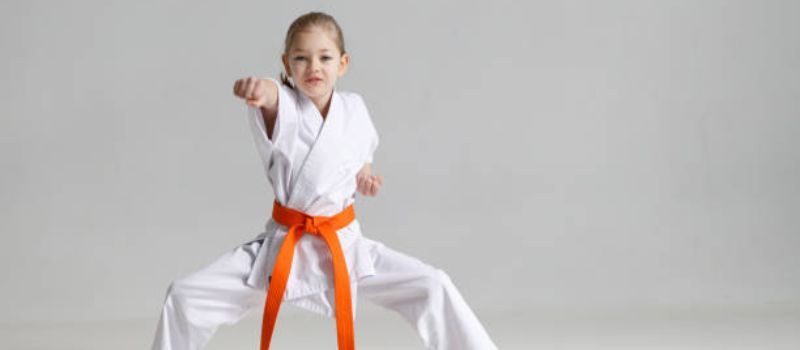Martial arts have been practiced for centuries and have evolved into various disciplines around the world. They not only provide physical fitness but also instill discipline, focus, and self-defense skills. Among the most popular martial arts styles are Jiu Jitsu vs Karate. In this article, we will explore the differences between these two disciplines and help you make an informed choice if you’re considering starting your martial arts journey.
Origins and history of jiu jitsu vs karate
Jiu Jitsu, also known as Brazilian Jiu Jitsu (BJJ), originated in Japan and was developed by the samurai as a system of self-defense. It focuses on ground fighting techniques and submissions, making it effective for self-defense situations where the fight goes to the ground. Jiu Jitsu gained international recognition when the Gracie family introduced it to the world through their impressive victories in mixed martial arts competitions.Karate, on the other hand, originated in Okinawa and was heavily influenced by Chinese martial arts. Karate was later brought to Japan and spread worldwide, becoming a popular martial art for both self-defense and sport.
Key principles and techniques of jiu jitsu
Jiu Jitsu is primarily a grappling martial art that focuses on utilizing leverage and technique to overcome larger opponents. It emphasizes the importance of proper body positioning, control, and submission holds to incapacitate an opponent. Training in Jiu Jitsu involves learning various techniques such as joint locks, chokes, sweeps, and escapes. The goal is to neutralize an opponent’s strength and size advantage by using leverage and technique effectively.

Key principles and techniques of karate
Karate, on the other hand, is a striking martial art that emphasizes speed, power, and precision. It utilizes a combination of punches, kicks, knee strikes, and elbow strikes to disable an opponent. Karate practitioners also learn defensive techniques to block and evade attacks. The focus in Karate is on developing strong stances, proper body mechanics, and explosive movements. Training in Karate involves practicing katas (pre-arranged sequences of movements), sparring, and physical conditioning.

Differences in training and philosophy between jiu jitsu vs karate
The difference between jiu jitsu and karate training methods differ significantly. Jiu Jitsu places a strong emphasis on live sparring, also known as rolling, where practitioners engage in controlled matches to apply their techniques against resisting opponents. This allows practitioners to test their skills in realistic scenarios and develop the ability to think and react quickly.
Karate, on the other hand, focuses more on forms and katas, which are predetermined sequences of movements. It also includes sparring, but the emphasis is often on point-based sparring where strikes are pulled or stopped before making contact. Additionally, Karate training places importance on discipline, respect, and the development of character.
Jiu jitsu versus karate: Which is better for self-defense?
When it comes to self-defense, both Jiu Jitsu and Karate have their strengths. Jiu Jitsu’s focus on ground fighting and submissions makes it highly effective in close-quarters situations and against larger opponents. It teaches practitioners how to control and immobilize an aggressor, even from disadvantaged positions.
On the other hand, Karate’s emphasis on striking techniques can be advantageous in situations where distance needs to be maintained or when dealing with multiple attackers. The ability to deliver powerful strikes quickly and efficiently can help deter or disable an assailant
Karate vs jiu jitsu: Which is better for competition?
In terms of competition, both Jiu Jitsu and Karate offer opportunities for practitioners to test their skills against others. Jiu Jitsu competitions, often referred to as tournaments, focus on live grappling matches where practitioners aim to submit their opponents or score points for dominant positions. These competitions are highly technical and require a deep understanding of Jiu Jitsu techniques and strategies.
Karate competitions, on the other hand, involve point-based sparring, where strikes are controlled and scored based on accuracy and effectiveness. Competitors aim to score points by landing strikes on specific target areas of their opponents’ bodies. These competitions require speed, agility, and precise technique.
Is Karate better than Jiu-jitsu?
The question of whether Karate is better than Jiu Jitsu, or vice versa, is subjective and depends on personal goals and preferences. Both martial arts have their own unique strengths and benefits. Karate offers a comprehensive striking system with a focus on discipline and character development. Jiu Jitsu, on the other hand, provides effective self-defense techniques and the ability to overcome larger opponents through leverage and technique.
Ultimately, the choice between Karate and Jiu Jitsu should be based on individual preferences, goals, and the availability of reputable instructors in your area. It’s also worth considering trying out both martial arts to gain a better understanding of their techniques, training methods, and philosophies before making a decision.

The street fight question
In a real-life self-defense situation, where there are no rules or referees, the effectiveness of a martial art comes down to the practitioner’s ability to adapt and respond to the unpredictable nature of the encounter. While techniques from both karate vs jiu jitsu can be effective in street fights, Jiu Jitsu’s focus on ground fighting and submissions can be particularly advantageous. Ground fighting allows practitioners to control and neutralize an opponent, even when facing multiple attackers or when taken to the ground.
However, it’s important to note that avoiding physical confrontations and practicing situational awareness should always be the first line of defense in any self-defense scenario.
Choosing between karate vs jiu jitsu
When deciding between Jiu Jitsu and Karate, there are several factors to consider:
- Personal goals:
Determine whether you’re more interested in self-defense, physical fitness, competition, or character development. - Learning style:
Consider whether you prefer grappling and ground fighting (Jiu Jitsu) or striking techniques (Karate). - Availability and quality of instructors:
Research and visit martial arts schools in your area to find experienced and reputable instructors. - Training environment:
Visit classes and observe the training atmosphere to see if it aligns with your preferences and goals. - Time commitment:
Consider the time and dedication required to progress in each martial art.
By considering these factors, you can make an informed decision that aligns with your goals and preferences.
Famous practitioners of jiu jitsu and karate
Over the years, many practitioners have achieved fame and recognition in both Jiu Jitsu or Karate. Some notable names include:
- Jiu Jitsu:
Helio Gracie, Royce Gracie, Marcelo Garcia, Rickson Gracie
- Karate:
Gichin Funakoshi, Mas Oyama, Chuck Norris, Bruce Lee (who practiced a hybrid martial art that incorporated elements of Karate)
These individuals have not only contributed to the development and popularization of their respective martial arts but have also demonstrated the effectiveness and skill required to excel in their chosen disciplines.
Conclusion
Choosing between Jiu Jitsu vs Karate is a personal decision that should be based on your goals, preferences, and the availability of reputable instructors in your area. Both martial arts offer a range of benefits, including physical fitness, self-defense skills, character development, and opportunities for competition.Remember, the effectiveness of any martial art comes down to the dedication, training, and skill level of the practitioner. It’s advisable to try out both Jiu Jitsu and Karate, if possible, to gain firsthand experience and a better understanding of their techniques, training methods, and philosophies.
FAQs
Is there a difference between karate and jiu-jitsu gi?
- Yes, there are differences. While both are martial arts uniforms, the jiu-jitsu gi is typically thicker and more durable, designed for the grappling and ground fighting techniques commonly used in Brazilian Jiu-Jitsu (BJJ). Karate gis are usually lighter and allow for more mobility, reflecting the striking-focused nature of karate.
Is Jiu-Jitsu one of the hardest sports?
- Jiu-Jitsu is indeed known for its physical and mental challenges. It requires strength, endurance, flexibility, and strategic thinking. The combination of intense training sessions and the complexity of techniques can make it a tough sport to master, but also incredibly rewarding.
What martial arts does John Wick use?
- In the John Wick movies, the character is portrayed as using a combination of Brazilian Jiu-Jitsu, Judo, and a form of gun-fu, a fictional martial art blending gunplay with hand-to-hand combat. The fight choreography in the films draws inspiration from various martial arts styles.
How many years does it take to get a black belt in BJJ?
- The journey to a black belt in BJJ is different for everyone and depends on factors such as dedication, training frequency, and natural aptitude. On average, it can take around 8 to 12 years of consistent training to achieve a black belt in Brazilian Jiu-Jitsu.
Feel free to comment down there,what you think about this blog.i would be happy


